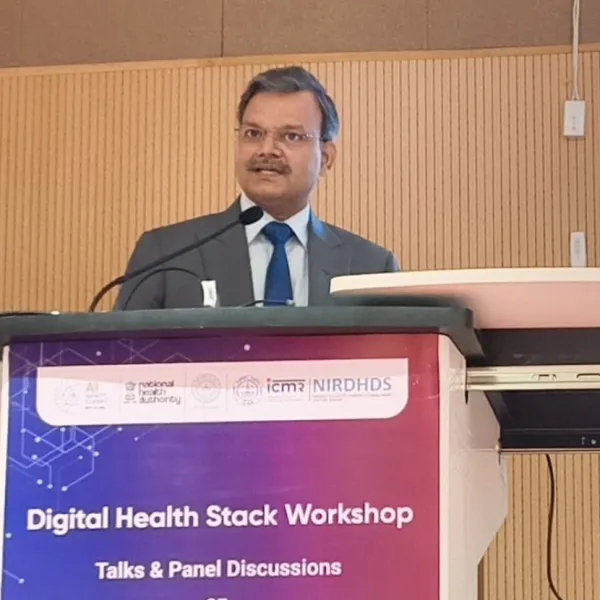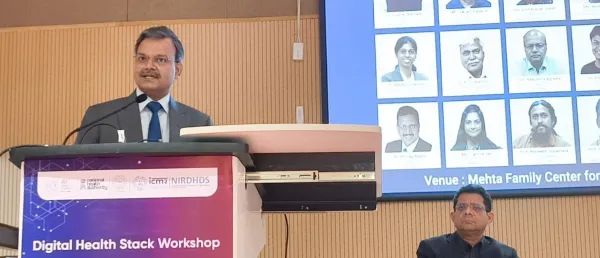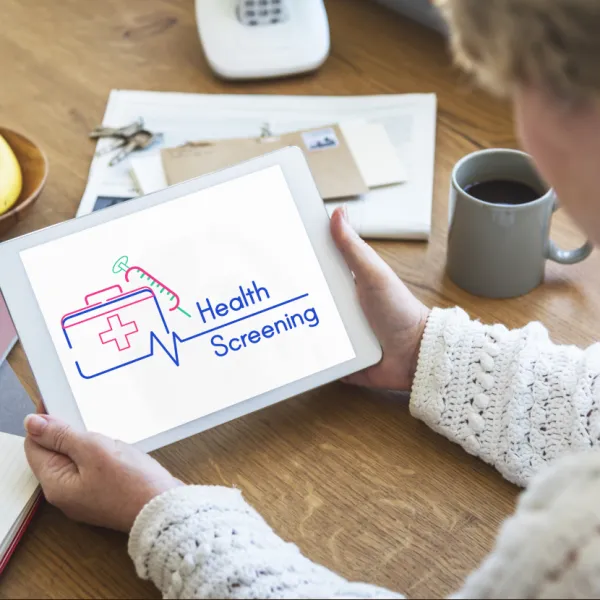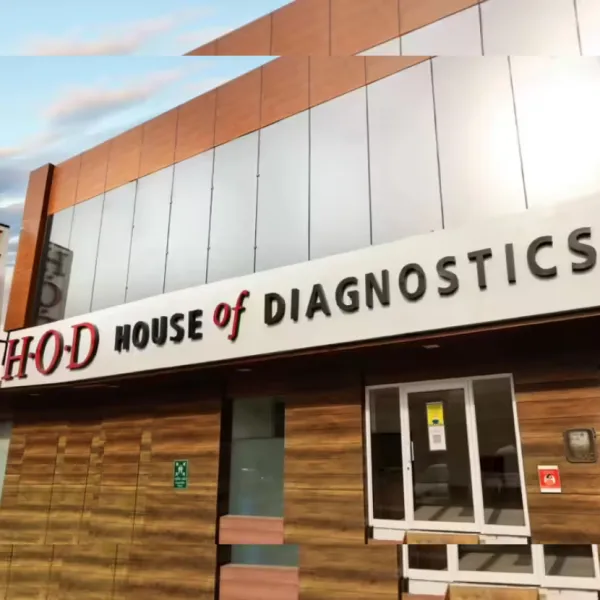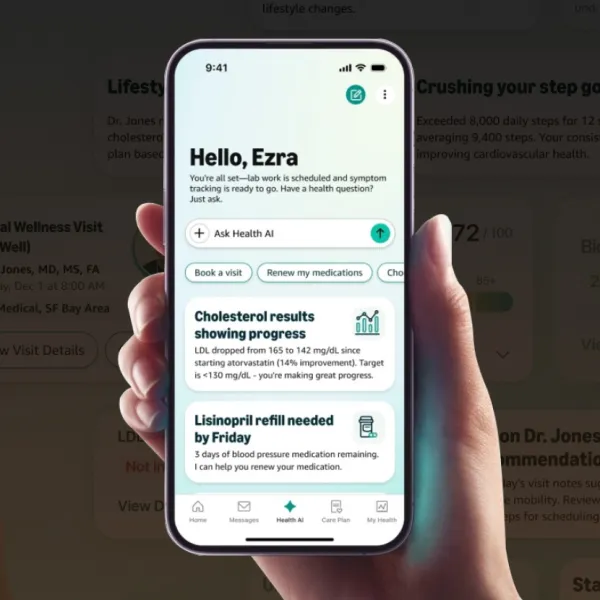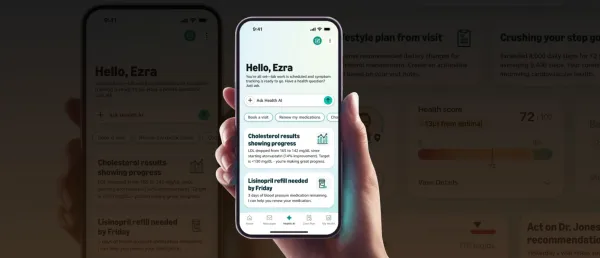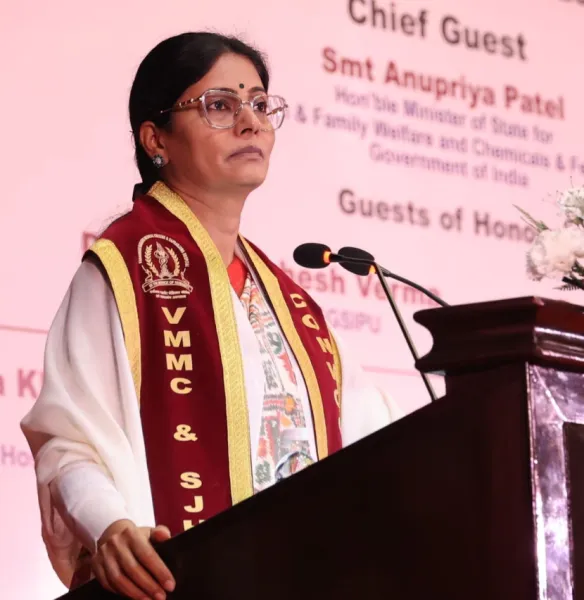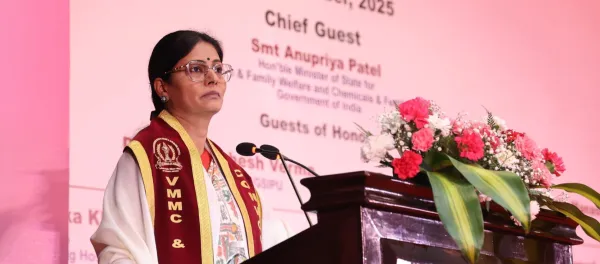Union Health Minister Nadda Chairs Mission Steering Group Meeting on National Health Mission

In the meeting, Health Minister Nadda acknowledged NHM's contributions and stressed the need to translate various health initiatives into measurable outcomes.
Union Health Minister JP Nadda has chaired the ninth meeting of the Mission Steering Group (MSG) of the National Health Mission (NHM) recently in the national capital.
The meeting, attended by Union Ministers of State for Health & Family Welfare Prataprao Jadhav and Anupriya Patel, along with senior officials from NITI Aayog and multiple government ministries, focused on reviewing NHM’s progress and setting future targets.
In the meeting, Health Minister Nadda acknowledged NHM's contributions and stressed the need to translate various health initiatives into measurable outcomes.
He highlighted the critical role of Chief Medical Officers (CMOs) in implementing healthcare schemes at the ground level and called for capacity-building efforts.
"We need to ensure the translation of agendas and objectives of different health schemes. Strengthening the capacities of CMOs through training and skill enhancement is crucial for achieving the desired results of healthcare schemes at the grassroots level," he stated.
Recognizing the contribution of ASHA workers in the healthcare system, Nadda described them as "grassroot foot soldiers" and emphasized the need for their empowerment.
"Revised incentives for routine activities and enhanced honorariums must be provided to ASHA workers to ensure their welfare and motivation," he added.
Future Roadmap: Technology & Digital Connectivity
The MSG was briefed on NHM’s achievements and future plans, including the integration of the Pradhan Mantri-Ayushman Bharat Health Infrastructure Mission (PM-ABHIM) for the first time.
The meeting included presentations on NHM and PM-ABHIM, outlining developments, future goals, and strategies to enhance healthcare services.
Key proposals included improving internet connectivity in Ayushman Aarogya Mandirs to facilitate tele-consultations.
Addressing the rising obesity concerns in India, discussions focused on AYUSH interventions and enhanced screening and management through these healthcare centers.
Nadda also stressed the importance of maintaining quality in healthcare infrastructure, particularly in newly introduced initiatives such as the Bharat Health Initiative for Sahyog Hita & Maitri (BHISHM) cubes.
The meeting also discussed policy frameworks, financial norms, and operational strategies to improve healthcare access. The broader objective remained to ensure universal, affordable, and quality healthcare while addressing challenges such as child and maternal mortality, population stabilization, and gender balance.
Nadda summarized the outcomes, remarking, "The decisions taken today will enhance healthcare service delivery at the grassroots level. Feedback and suggestions from this meeting will be incorporated to shape future healthcare policies and interventions."
Stay tuned for more such updates on Digital Health News







